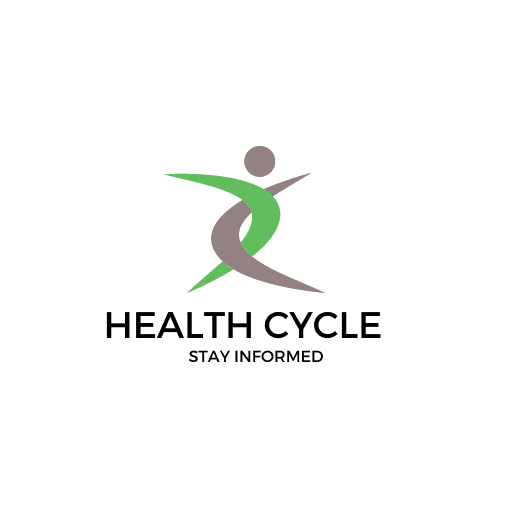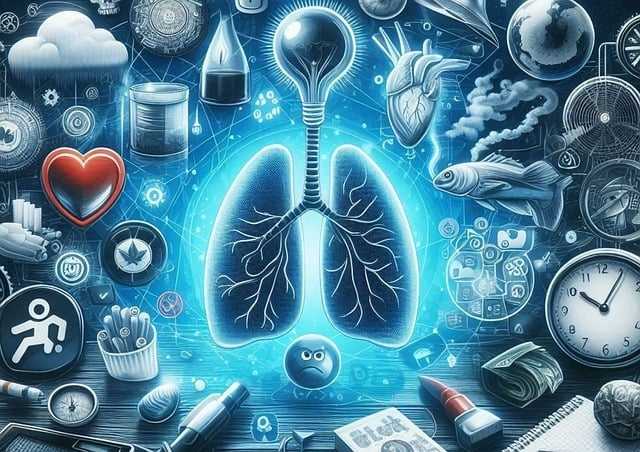Suffering from depression and anxiety? and Searching for Depression and Anxiety Medications that can be can be like fighting a battle. But frequently the treatment course includes medications, which are important for some to control their signs and symptoms and live better lives. However, much as meds may help you with, they do have their side effects! It will also discuss typical side effects of Depression and Anxiety Medications, how to cope with them, and getting through the experience as an easy howler.
What Are Depression and Anxiety Medications?
We will need to elucidate a bit on what these medications are, and how they work before moving on the what and why of their side effects.
The drugs for these problems mainly focus on the brain chemicals balance to improve mood and emotions. They can be classified into multiple classes:
- Antidepressants: A class of drugs that work to regulate mood in those with depression statements.
- Anxiolytics: Medications that lessen symptoms of anxiety and insomnia.
Here are a few of most windswept antidepressants and anti-anxiety drugs together with their rank names:
- SSRIs (Selective Serotonin Reuptake Inhibitors): Medications like Prozac, Zoloft, and Lexapro.
- SNRIs (Serotonin-Norepinephrine Reuptake Inhibitors): Drugs such as Effexor and Cymbalta.
- Benzodiazepines: Anti-anxiety medications like Xanax, Ativan, and Valium.
- MAOIs (Monoamine Oxidase Inhibitors): Nardil and Parnate are examples of these older antidepressants.
- TCAs (Tricyclic Antidepressants): Medications like Elavil and Pamelor.
It helps stabilize the chemicals serotonin, norepinephrine, and dopamine in your brain which regulate mood. Though these medications can be highly effective for some people, they also have a long list full of potential side effects.
Side Effects of Depression and Anxiety Medications.
Every drug can have unique side effects in every body, but some are more commonly reported. Below we will cover them in more depth.
1- Nausea | Depression and Anxiety Medications Side-Effect
Nausea Is The Main Common Side Effect Of Depression and Anxiety Medications, However, a lot of people complain about experiencing nausea when they first start taking these medications – antidepressants or anti-anxiety drugs. That might be milder discomfort or a point where you think you’re going to puke. This is a common one people have with some SSRI’s such as Zoloft or Prozac for the first week.
What To Do: Nausea should go away as your body gets used to the medicine. In addition, you may experience less nausea if you take the medication with meals or at bedtime. After all, if you try it after and the problem recurs, speak with your physician concerning adjusting your dosage.
2- Fatigue and Drowsiness | Depression and Anxiety Medications Side-Effect
Exhaustion and Hypersomnia- This is yet another frequent consequence which indicates one to feel frustrated and also to rest all night long at odd intervals. Though this is even more true with drugs like benzodiazepines, which can have quite a calming effect on you. In addition, antidepressants such as SSRIs and SNRIs can make you feel even more sleepy, especially when you start them assistance.
What To Do: If you find it makes you drowsy maybe take this at bedtime instead of other medications. If you have been experiencing this for a few weeks, it may be time to discuss dose adjustment or medication switching with your doctor.
3- Weight Gain | Depression and Anxiety Medications Side-Effect
Many people find the weight gain side effect of some antidepressants — especially the selective serotonin reuptake inhibitors (SSRIs) and tricyclics (TCAs) — somewhat off-putting. You also may gain or lose weight as a result of increased appetite, changes in your metabolism and physical activity as the medication stabilizes your mood.
What To Do: keep track of your diet, and exercise when you can. If you are worried about weight gain, talk with your doctor. They might change the dose or give you a different prescription.
4- Sexual Side Effects | Depression and Anxiety Medications Side-Effect
These include a decreased libido, difficulty achieving orgasm and increased erectile dysfunction. It is a common issue with SSRIs and SNRIs. Unfortunately, these side effects can take a toll on ones relationships and self-esteem as well.
What you can do: If you are experiencing sexual side effects, do not be afraid to speak with your health care provider. In some cases, changing medications or adding an additional medication to improve sexual functioning might help.
5- Insomnia | Depression and Anxiety Medications Side-Effect
On the other hand, some medications make you feel tired all the time and it becomes hard to stay alert. Sleep issues are common with medications to help with depression, such as SSRI’s. That can be extremely annoying to deal with, particularly because anxiety and depression symptoms tend to worsen when you are not well-rested.
What you can Do: lay off the caffeine and stimulative stuff before bedtime Establishing a calming night routine can help. If the issue persists, contact your doctor, they may recommend modifying your dose or when you take it.
6- Dizziness | Depression and Anxiety Medications Side-Effect
And some classes of antidepressants, in particular SNRIs, can make you feel dizzy or lightheaded. Benzodiazepines, which are commonly prescribed to treat anxiety can also cause dizziness.
Actions: When you wake up or stand up from a lying position, do it little by little so not to decrease blood pressure suddenly and dizzy. It also helps if you drink plenty of water and hydrate your skin. If the issue still persists, see your medical healthcare provider.
7- Dry Mouth | Depression and Anxiety Medications Side-Effect
Tricyclic Antidepressants and Dry Mouth Tricyclic antidepressants are another type of medication that often causes dry mouth, which is also called “cottonmouth. Though admittedly uncomfortable it is more annoying than harmful.
Solution: Drink water every day, chew sugar-free gum, or use mouth sprays for dry nourishment.
8- Headaches | Depression and Anxiety Medications Side-Effect
Among the most common side effects in people taking SSRIs are headaches, which tend to occur early in treatment. These headaches are typically benign and transient.
What to do: You can also take anti-inflammatory and pain-relieving drugs available over the counter, such as ibuprofen or acetaminophen. It is crucial for those experiencing ongoing migraines to report this condition to a doctor.
9- Restlessness and Jitters | Depression and Anxiety Medications Side-Effect
The goal of an anti-anxiety medication is to help you feel calmer or more relaxed, but some people experience restlessness and always being too hyped up. You see this a lot with SSRIs in particular and it can feel like more anxiety which is what the meds were supposed to be treating.
What to do: This is usually a fleeting occurrence as your body adapts to the medication. Use a relaxation technique, such as deep breathing, meditation and yoga or go for a walk beforehand to ease your nerves.
10- Blurred Vision | Depression and Anxiety Medications Side-Effect
The older antidepressants, such as the TCAs, and can cause blurred vision. It is usually quite temporary in nature, but it can be worrying.
What to do: This effect often lessens over time as your body adjusts, so here is a good reason to be patient. But If It Doesn’t Leave or Gets Even Worse Go To Your Doctor Right Away.
Depression and Anxiety Medications Side Effects and How to Deal with Them?
Side effects are a pain to deal with, but it’s important to remember that side effects often decrease or disappear altogether the more your body grows accustomed to the medication. Tips for handling side effects
- Have Patience: Some side effects improve as the body adjusts to the medicine over a few weeks of treatment.
- Discuss with your doctor: If a specific side effect is troubling, your doctor may suggest adjusting the dose, changing to another medication or prescribe something to alleviate the side effects.
- Quality of life interventions: diet, exercise and sleep Good quality of life principles such as exercise, healthy foods, regular sleeping habits may help with other side effects like weight gain, fatigue or insomnia from medications.
- Time of Medication: Taking medication at different times during the day can reduce drowsiness or insomnia. If you are not sure when to take your medications, consult with your doctor.
- Hydrate: Hydrate well to avoid dry mouth and feeling light-headed.
When to Call Your Doctor
These side effects may be mild or severe. If you develop any of the following symptoms, seek medical care immediately:
- Unusual or persistent nausea or vomiting
- Cooling of the skin, Difficulty with breathing or swallowing
- Face, lips, mouth, or tongue swelling
- Chest pains or racing heart Beat
- Sudden changes in mood, which could include worsening depression or suicidal thoughts
If any of the side effects hinder your quality of life more than that, definitely contact your healthcare provider. They might change your prescription or recommend other options.
Nature Made the Original Medicine
Though medication can be an incredibly effective treatment, many people would rather try something natural. Please see your doctor for these latter options if you are worried about side effects.
- Psychotherapy: Cognitive-behavioral therapy works to change your thoughts and behaviors that can be contributing to depression or anxiety. While medication can assist in muting symptoms, therapy is a way to manage these symptoms without wholly relying on drugs.
- Move: Natural exercise can improve mood and reduce symptoms of depression and anxiety medications.
- However, supplements such as Omega-3 fatty acids, St. John’s Wort, and SAM-e offer relief to some with very mild symptoms. Still, make sure you ask your doctor before adding them to your diet.
Conclusion
Depression And Anxiety Medications can be a life saver when it comes to simply existing within your symptoms but heavy side effects are common. Knowing the potential side effects, what to do about them, and following up with your healthcare provider can help you feel well. Keep in mind, everyone responds differently to medications so it might be a bit before you find the perfect fit. With patience, and an open communication with your doctor, including healthy habits to be part of this routine in your life will help you in this success journey.
Regardless of whether you’re newly medicated or have been taking mental health meds for a while, knowing these things armes you with the info you need to manage your mental health like a boss.



